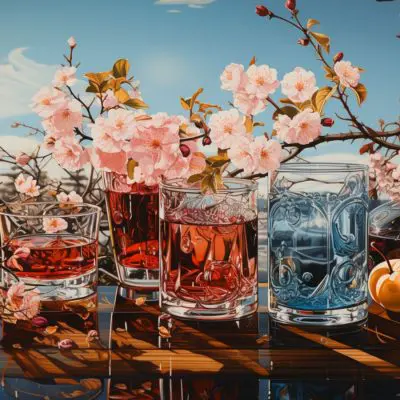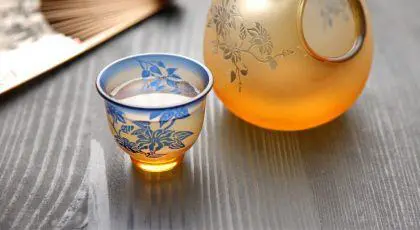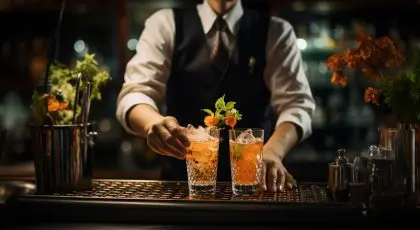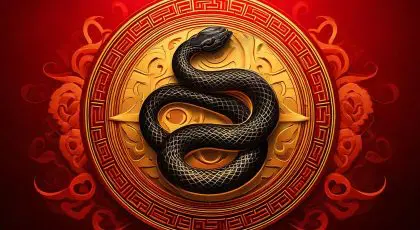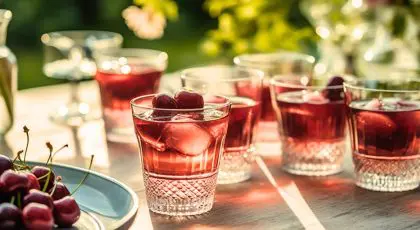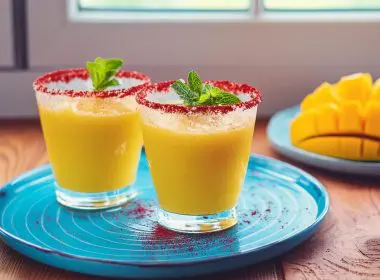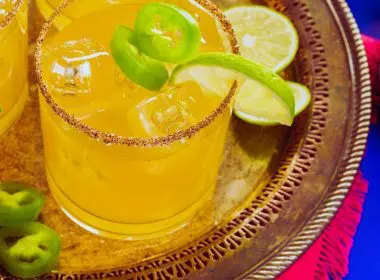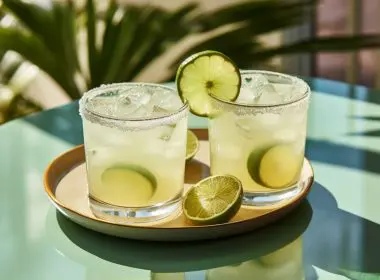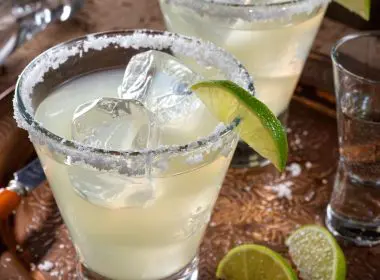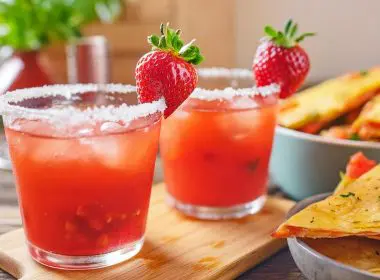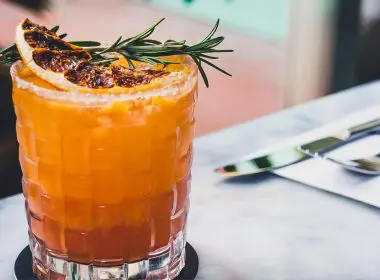Shochu Cocktails: A Guide to Japan’s Under-the-Radar Spirit
Jump to:
- The history of shochu
- How to use shochu in cocktails
- 1. The Japanese Sidecar
- 2. Hana Hana Highball
- 3. Shochu Apple Sour Cocktail
- 4. The Japanese Gimlet
- 5. Shochu and Tonic
- 6. Hanamizaké Martini
- 7. Old Fashioned Samurai
- 8. Chili Mango Shochu Cocktail
- 9. Yuzu Sour
- 10. Shikoku Mule (Yuzu Moscow Mule)
- 11. Shochu Margarita
Shochu cocktails are trending hard right now, and The Mixer is here to teach you all about them. Step right up and discover the allure of Japan’s favorite spirit! Unlike its cousin, sake, which is brewed like beer, shochu is a true distilled gem made from diverse starches like buckwheat, rice, or sweet potatoes.
The history of shochu
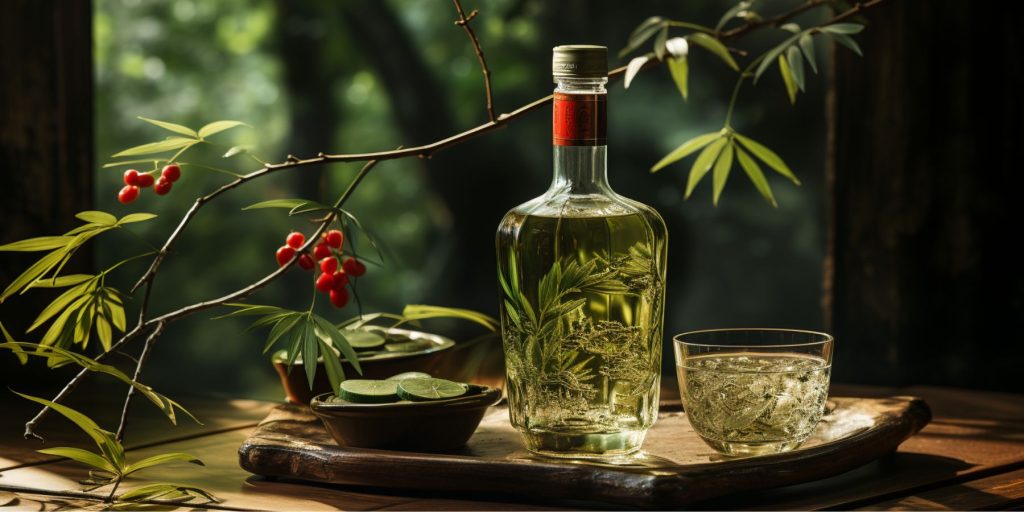
Shochu’s history dates back to ancient times in Japan. It is believed to have originated around the 16th century, during the Muromachi period. The spirit’s roots can be traced to distilled liquor brought from China and Southeast Asia. Over the centuries, shochu production methods evolved, and it became popular across Japan.
Today, it remains a cherished part of Japan’s culture, celebrated at social gatherings and cherished ceremonies. The finest varieties are crafted with barley by renowned Japanese distillers, such as Iichiko and Mizu. Its distillation process is an art, beginning with grain selection. The more polished the grain, the smoother the shochu – just like sake.
Shochu is also divided into subtypes, based on the components and region. The most common types are:
- Imo shochu (crafted from sweet potatoes)
- Mugi shochu (crafted from barley)
- Kome shochu (crafted from rice)
- Kokuto shochu (crafted from brown sugar)
- Soba shochu (crafted from buckwheat)
- Shiso shochu (crafted from the Shiso herb)
- Okinawan or Awamori shochu (crafted in Okinawa)
TOP TIP! Although their names may sound alike and there are certain similarities, shochu, and soju are different things. Soju is a clear, distilled spirit that originated in Korea.
How to use shochu in cocktails
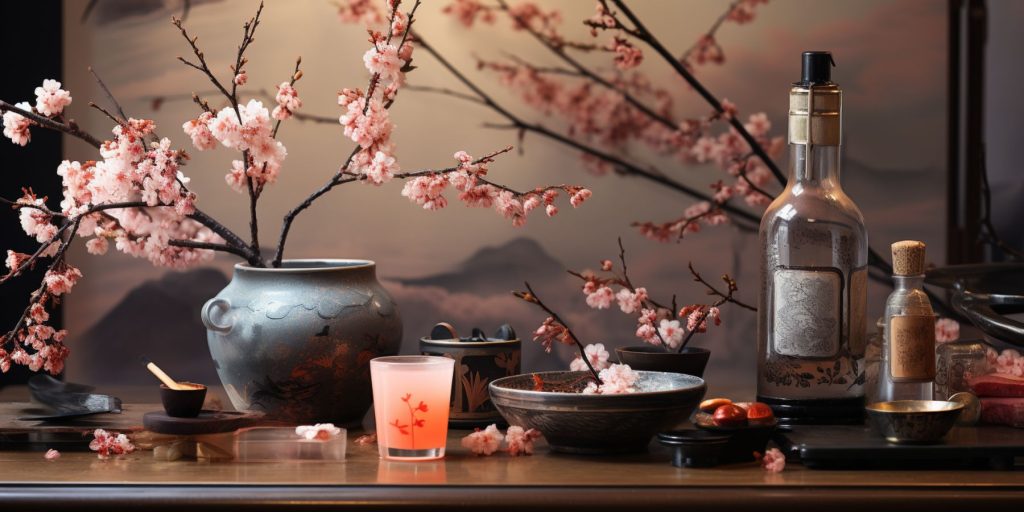
The rich and versatile flavor profile of shochu makes it an excellent base for cocktails. Unlike traditional spirits like vodka, this true distilled spirit boasts a more intricate crafting process, resulting in a depth of flavors that add a delicious and tempting complexity to cocktails.
Whether mixed with citrusy yuzu, elderflower liqueur, or refreshing mint, shochu effortlessly adapts to different ingredients, paving the way for delightfully harmonious drinks. Its centuries-old history in Japanese culture further adds an element of intrigue and cultural significance to any cocktail creation.
Here are a few of our favorites to try at home:
1. The Japanese Sidecar
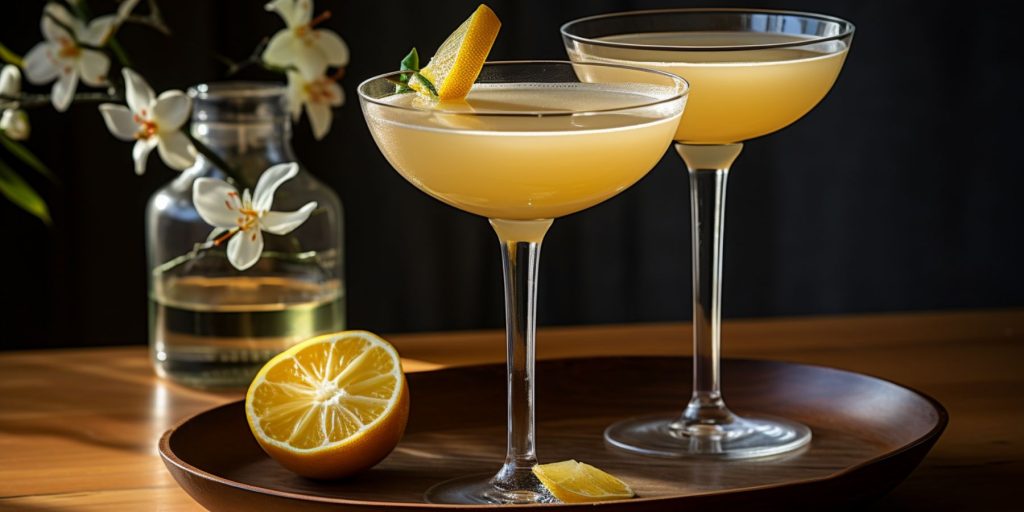
Arguably one of the best shochu cocktails to try when you just start playing around with this intriguing spirit is the Japanese Sidecar. In a cocktail shaker filled with ice, combine 2 oz of shochu, 0.75 oz of lemon juice, 0.5 oz of orange liqueur, 0.5 oz of brown sugar syrup, and 2 dashes of orange bitters. Shake vigorously until well-chilled, then strain it into a chilled coupe or cocktail glass. For an elegant touch, consider garnishing with a twist of lemon peel or a fresh orange slice.
Grand Marnier is a superb choice for the orange liqueur in a Japanese Sidecar. Its rich blend of fine Cognac and orange essence adds depth and complexity, enhancing the cocktail’s citrus notes. The smooth, warming character of Grand Marnier pairs seamlessly with the shochu and lemon juice.
You might also like: Classic Sidecar | Vodka Sidecar
2. Hana Hana Highball
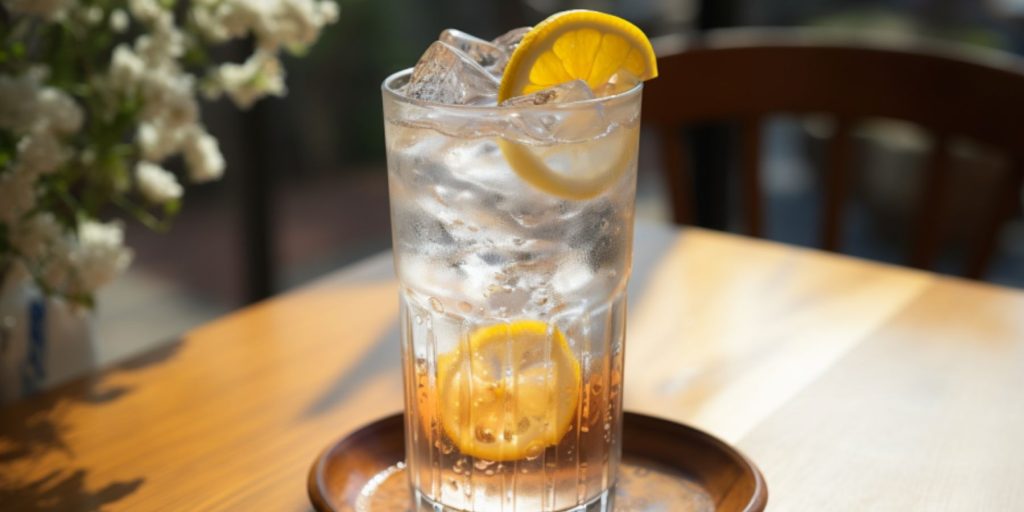
The time-honored Highball Cocktail has quite an interesting history. The trend, which ostensibly started in England, made its way to the US, and eventually became a major thing in Japan. You can read all about it here. To make the Hana Hana version, add 2 oz of shochu and 4 oz soda water to a Collins glass over ice. Squeeze the juice of half a lemon straight into the glass, stir well, and serve.
FUN FACT: Hana means ‘flower’ or ‘blossom’ in Japanese (花).
3. Shochu Apple Sour Cocktail
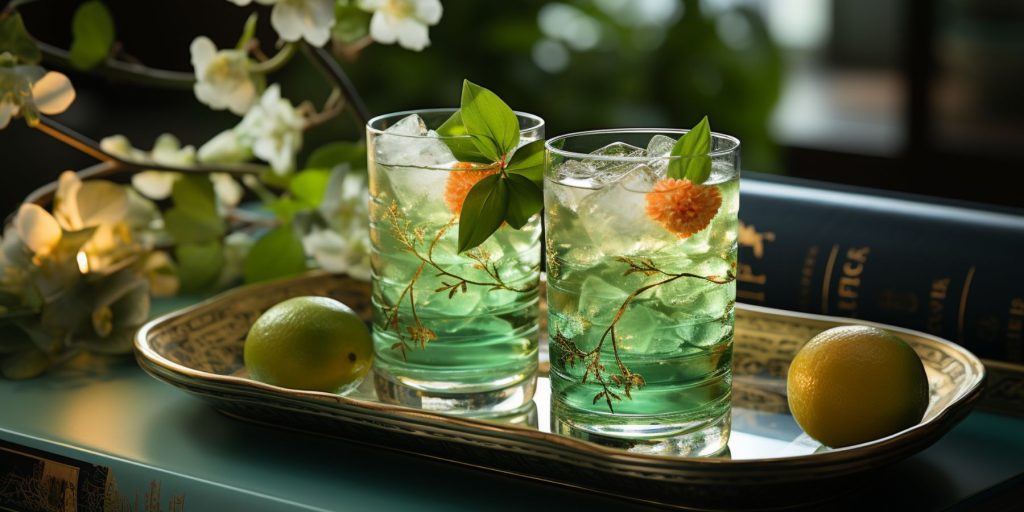
If you love sour cocktails, the Shochu Apple Sour Cocktail is bound to be right up your alley. Japanese shochu cocktails do not come any crisper and tangier than this. In Japan, the combination of apple and Shochu is so popular that it’s available as ready-to-drink beverages sold in cans. Of course, fresh is best, so here’s our DIY recipe.
Add ice to a highball glass and pour in 4 oz of shochu. Then add 2.5 oz apple juice (freshly pressed if possible), 0.5 oz honey syrup, and 0.5 oz yuzu juice. Substitute lemon juice if you can’t find yuzu. Stir until everything is combined. Top off with 2.5 oz chilled soda water and garnish with apple slices.
Learn more: 6 Perfect Apple Cocktails to Make This Fall
4. The Japanese Gimlet
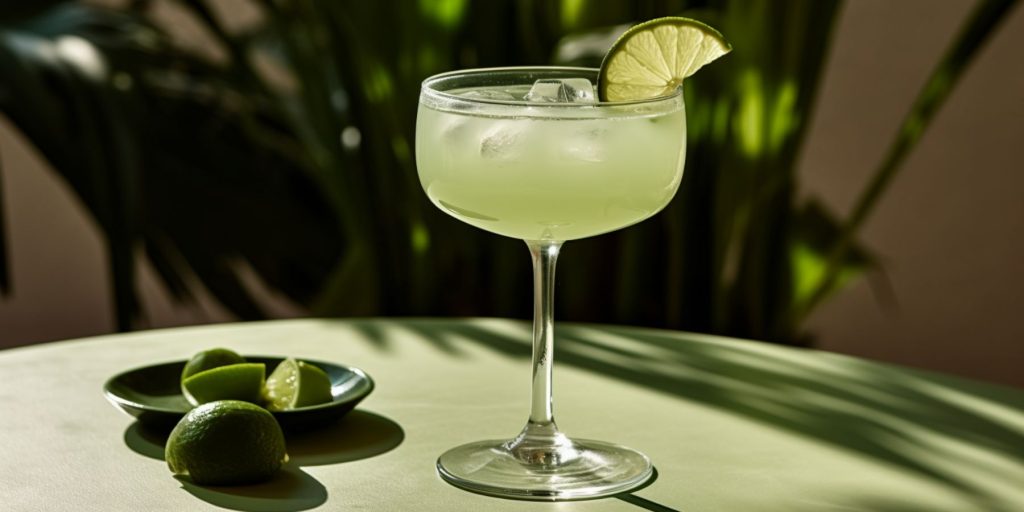
The OG Gimlet had its heyday on the high seas and remains a classic clinker to this day. Naturally, the Eastern-inspired spinoff is also a complete vibe. This lemon shochu cocktail is very easy to make, and just as simple to enjoy. Add 2 oz shochu, 1 oz lime juice, and 0.75 oz simple syrup to a cocktail shaker with Ice. Shake, then strain into a chilled glass and garnish with a lime wheel.
5. Shochu and Tonic
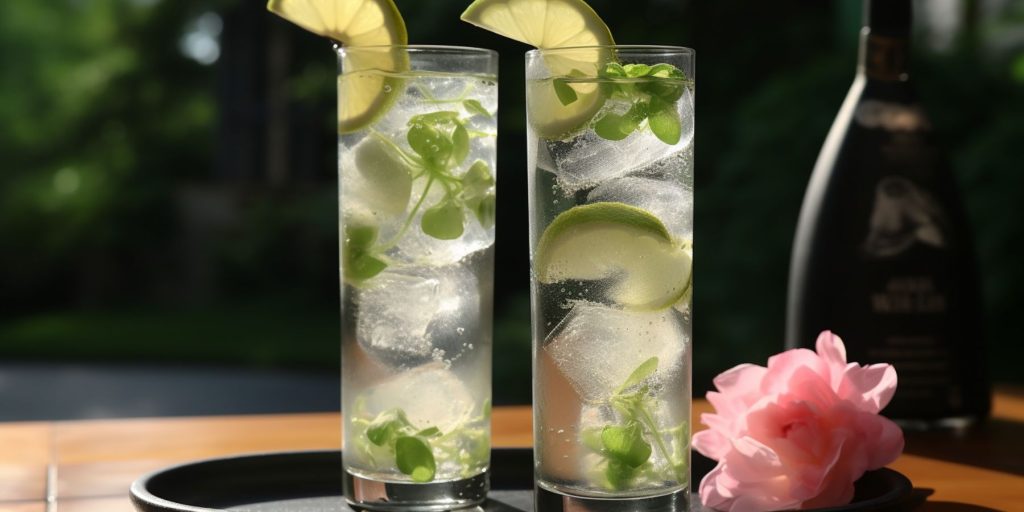
The Vodka Tonic has been a bar-side staple for decades, and with good reason – it’s a simple combination that works really well. If this is your go-to, you might like to shake things up with a Shochu and Tonic. Fill a tall glass with ice. Add 1 oz shochu, 1 oz of your favourite aperitif, and grapefruit slices. Top with 3 oz tonic water and add a sprig of mint.
6. Hanamizaké Martini
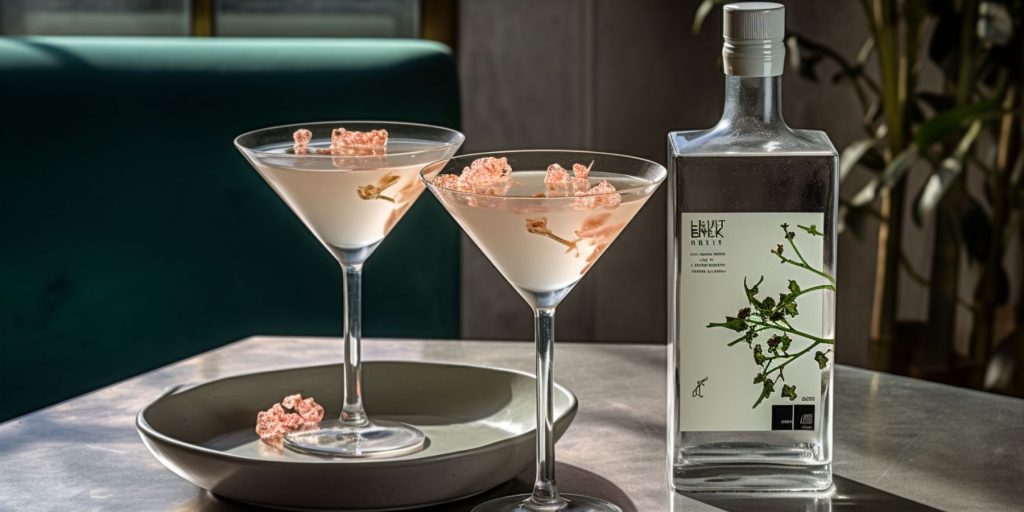
Love experimenting with different types of Martinis? Try your hand at a Hanamizaké Martini. It calls for a few unusual ingredients, but we love it just the same. Add 1.5 oz shochu, 0.25 oz Bulldog Gin, 1.5 oz sake, and 0.5 oz Cinzano Vermouth Bianco to a mixing glass with ice. Stir and strain into a chilled cocktail glass over shiozakura (salted sakura blossoms). If you cannot find any shiozakura, you could use some caviar or good old green olives instead.
7. Old Fashioned Samurai
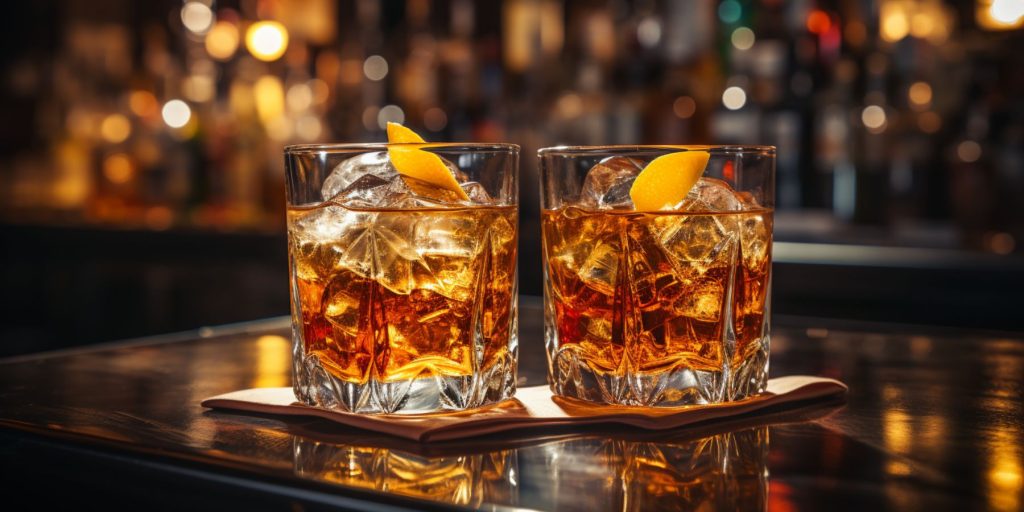
The Old Fashioned will never go out of style, and this take on the classic is quite spectacular. Add 1 tsp sugar, 3 dashes of bitters, and a splash of soda water to a rocks glass. Muddle and stir the mix until the sugar has completely dissolved. Add 2 oz shochu, and some ice. Stir the drink for 10 seconds. Twist an orange peel over the drink, drop it in, and serve.
Check out next: Anejo Old Fashioned | Classic Old Fashioned | Apple Butter Old Fashioned
8. Chili Mango Shochu Cocktail
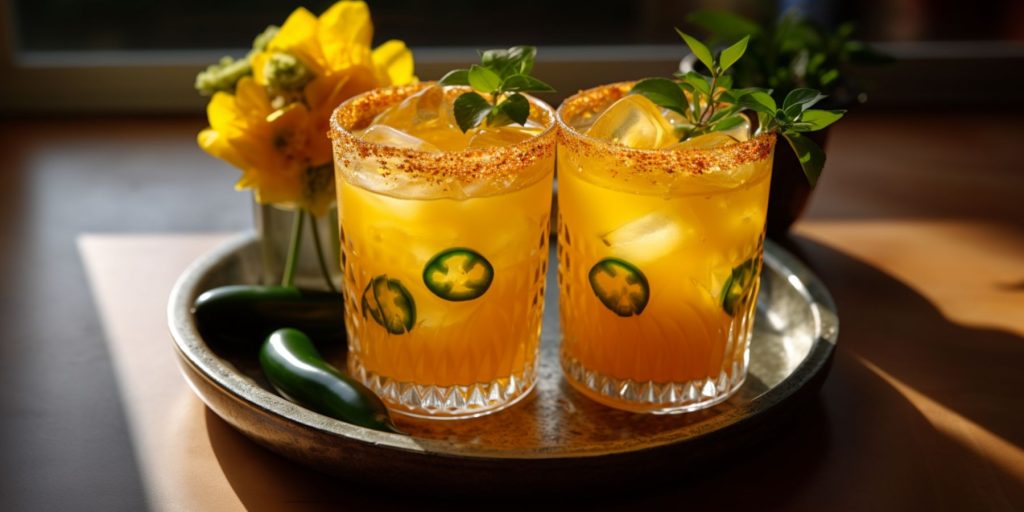
No list of shochu cocktail recipes would be complete without the Chili Mango Shochu Cocktail. Rim a glass with lime juice and tajin spice. Add 2 oz shochu, 4 oz mango juice, and a dash of tajin spice to a cocktail shaker with ice. Shake to combine, strain into your prepared serving glass over fresh ice, and add jalapeño slices as a garnish.
More mango magic: 8 Deliciously Fresh Mango Cocktails You Must Try
9. Yuzu Sour
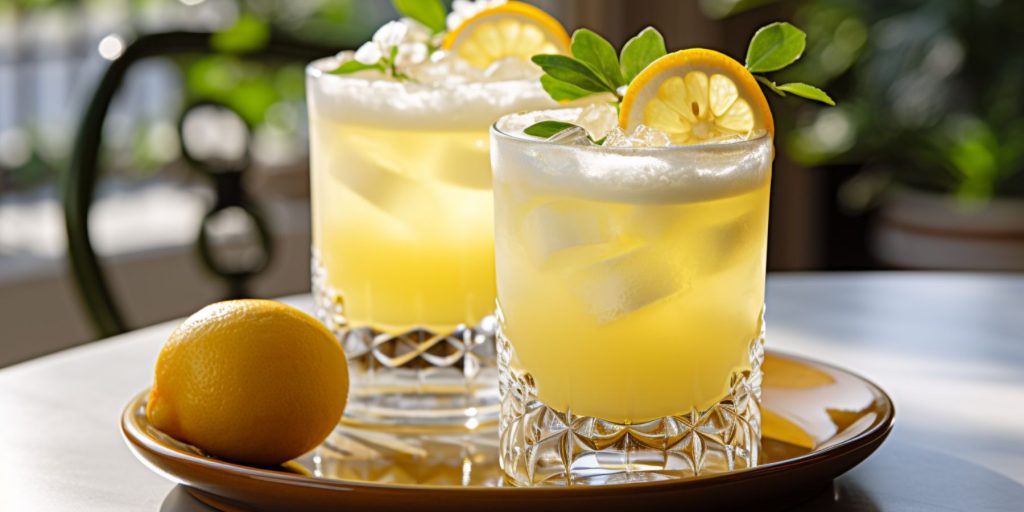
Keen to taste what happens to the classic Whiskey Sour when it travels to Japan t? Oh, it’s good! Add 2 oz shochu, 1 oz lemon juice, 1 oz yuzu juice, 0.5 oz simple syrup, and one egg white to a cocktail shaker and dry shake vigorously for 10 seconds. Add ice and shake again until well-chilled. Strain into a chilled glass and enjoy.
10. Shikoku Mule (Yuzu Moscow Mule)
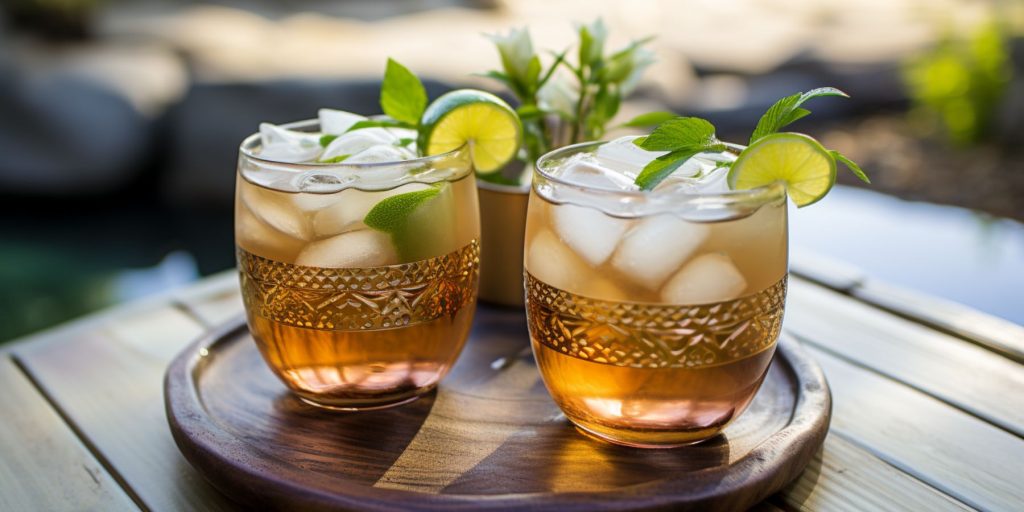
More marvelous Mule cocktails? We’ve got you. Try the Shikoku Mule next. Fill a glass with ice cubes. Add 1 oz shochu and 1 oz yuzu juice. Now fill the glass to the top with ginger beer. Gently stir, garnish with a lime wedge, and serve. Easy peasy!
11. Shochu Margarita
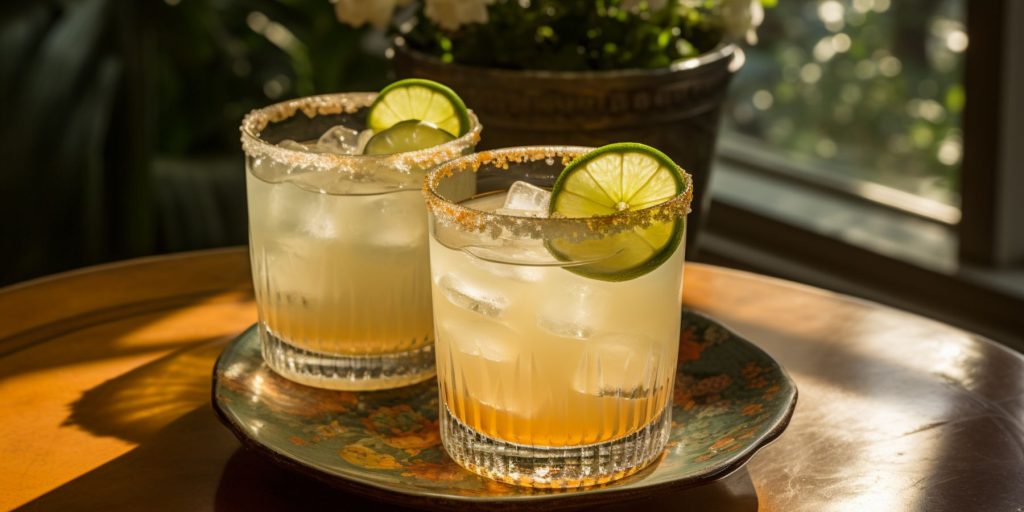
If you’ve been on the lookout for the best Margarita cocktail, you’ve got to shake up a Shochu Margarita. Add 2 oz shochu, 1 oz lime juice, 0.5 oz simple syrup, and a pinch of sea salt to a cocktail shaker with ice. Shake until well combined, strain into a serving glass over fresh ice, and serve.
